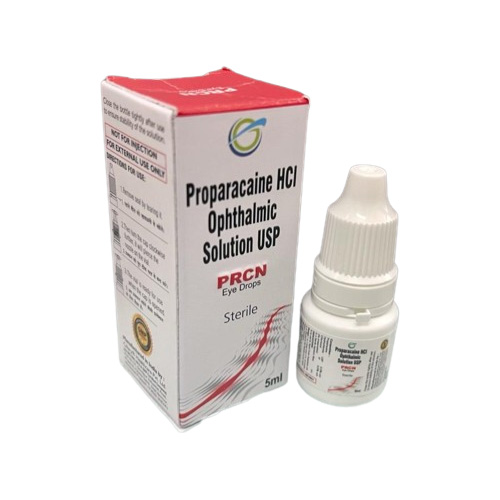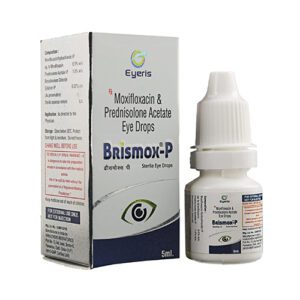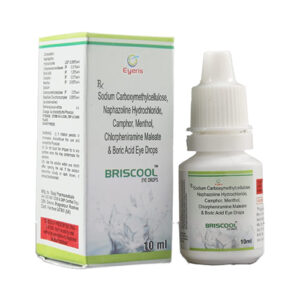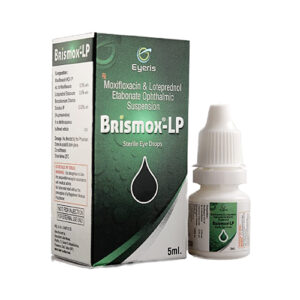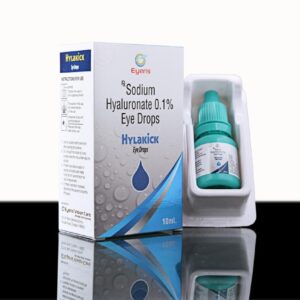Description
Proparacaine HCL Ophthalmic Solution Proparacaine HCL is classified as an ophthalmic agent and is utilized for eye examination during diagnosis, disease detection, or therapeutic procedures. It can aid in identifying eye inflammation or other eye conditions like uveitis. Uveitis is a type of eye inflammation that affects the uvea, the middle layer of tissue in the eye. It can affect one or both eyes and can occur at any age.
Proparacaine includes proparacaine which functions by inhibiting the pain signals at the nerve endings in the eye. This enables thorough inspection of the interior of your eye. Frequently, it is utilized to numb the eye before cataract surgery or other eye surgeries, as well as during eye examinations.
Mechanism of Proparacaine HCL Ophthalmic Solution
The exact process by which proparacaine is uncertain. Its anesthetics’ active ingredient affects the cell membrane of the eye. Proparacaine changes epithelial sodium channels by interacting with residues that protect the channels. This restriction hinders the essential transformation needed to generate the action potential. It operates by preventing pain signals from the nerves on the outer parts of the body from reaching the brain, resulting in a reduction in the feeling of pain.
Uses of Proparacaine HCL Ophthalmic Solution
Proparacaine HCL Ophthalmic Solution is a topical anesthetic used in ophthalmology for various diagnostic and therapeutic procedures. Here are the primary uses:
- Eye Procedures: Proparacaine is a topical anesthetic that works by blocking pain signals at the nerve endings in the eye. It is used to numb the eye before procedures, tests, or surgery to prevent pain and allow for proper examination.
- Cataract Surgery: Proparacaine HCL Ophthalmic solution is ordered to anesthetize the eye and relieve the eye muscles during Cataract Surgery. Proparacaine eye drops function by desensitizing the nerve endings and blocking pain during the procedure.
- Eye Pain: Proparacaine can be employed to eliminate surface reasons for eye discomfort, like damage to the cornea or epithelium.
Note: Proparacaine is available in solution form and should only be administered by or under the direct supervision of an eye doctor.
Side Effects of Proparacaine HCL Ophthalmic Solution
Proparacaine HCL Ophthalmic Solution is a local anesthetic used primarily in eye examinations and surgeries. While it is generally safe when used as directed by a healthcare professional, it can cause side effects in some individuals. Here are some possible side effects:
- A brief stinging sensation.
- Burning Sensation in Eyes.
- Allergic Reactions such as redness, swelling, and itching.
- Potential corneal damage with repeated or prolonged use.
Precautions with HCL Ophthalmic Solution
This Proparacaine HCL solution is prescribed only for short-term use due to its potential side effects on the cornea with prolonged use.
- This solution should only be used under the supervision of a healthcare professional.
- Refrain from touching your eye until the numbing effects of this solution have fully worn off.
- This medicine may cause blurred vision or make your eyes sensitive to light. So be highly cautious while driving or anything that needs to be seen clearly.
- Protech your eyes from direct bright light or sunlight after being treated with Proparacaine HCL Ophthalmic.
Frequently Asked Questions (FAQs)
Q1. Does Proparacaine HCL solution have an anti-allergic property?
No, Proparacaine HCL solution is a numbing eye drop and it doesn’t have any soothing, hydrating, anti-allergy, or antibiotic properties.
Q2. How long does proparacaine last in the eyes?
Proparacaine is a topical ophthalmic anesthetic medication. This provides a numbing effect for 10-20 minutes in the eyes.


